
Pre-Paid Energy Meters: Are Low-Income Families Being Punished by Policy?
The CFPB Explained: What It Is and Why It Matters to You
If you’ve ever been slapped with a mysterious fee, received a credit card statement that reads like hieroglyphics, or felt like your financial institution was playing a game of hide and seek with transparency—congratulations, you’re a modern-day consumer. And as such, you’ve got an unlikely guardian watching over your shoulder: the Consumer Financial Protection Bureau (CFPB). But what is it, really? And why should you care? Well, sit comfortably with your lightly overpriced latte—I’m Ellie Cartwright, and we’re about to demystify the regulatory knight of your financial kingdom.
What Exactly Is the CFPB?
The CFPB, or Consumer Financial Protection Bureau, is a U.S. government agency established in the wake of the 2008 financial crisis. It was created under the Dodd-Frank Wall Street Reform and Consumer Protection Act in 2010, and trust me, there’s a reason that law has “protection” in the title—it’s meant to look out for you, the consumer.
Its mission? Simple on paper, but revolutionary in practice: to make sure banks, lenders, and financial companies play fair. And when they don’t, the CFPB is there to call them out—sometimes to the tune of millions of dollars in fines and consumer reimbursements.
A Brief Look at Its Toolbox
Think of the CFPB as a combination of a watchdog, referee, and paper trail enthusiast. They’re empowered to:
- Write and enforce rules for financial institutions
- Supervise banks and nonbanks alike (yes, payday lenders, we see you)
- Take action against companies that break the law
- Provide educational resources to the public
- Handle complaints from consumers just like you
So whether you’re getting hammered by hidden credit card fees or feel fleeced by your mortgage servicer, they’ve got your back.
Why the CFPB Matters to Everyday People
1. They Return Billions to Consumers
Since its inception, the CFPB has returned more than $16 billion to consumers in enforcement actions (as of early 2024). That’s not pocket change—it’s mortgage payments, college tuition, lifesaving medication. When companies mislead customers or skirt the law, the CFPB steps in. Real money gets put back into real people’s pockets.
2. They Simplify the Fine Print
You know that feeling when your eyes glaze over a 27-page Terms and Conditions document? The CFPB works to make sure financial contracts are easier to understand and more transparent. They’ve enforced guidelines that push companies to use clearer terms and avoid hiding critical information in unreadable microprint.
3. They Empower You to Speak Up
If your bank decided to randomly charge you $35 for “processing maintenance,” you don’t have to quietly stew. The CFPB accepts consumer complaints online, investigates them, and often resolves them in a matter of weeks. Over 3 million complaints have been reviewed since 2011. This is advocacy with muscle.
Recent Wins and Real-World Impact
Silencing the Debt Collection Harassment
In early 2023, the CFPB cracked down on a major debt collection agency that harassed consumers via illegal robocalls, threats, and by contacting people at work despite being told not to. The outcome? Millions in fines, affected consumers receiving financial relief, and public trust reinforced just a bit more.
Pushing Back on Junk Fees
Too many banks love slipping “junk fees” into unsuspecting accounts. From overdraft fees to “inactivity” charges, these eat away at your hard-earned money. The CFPB has taken aggressive action to limit or outlaw these fees, advocating for what they call “fee transparency.” Because if you’re going to charge me $10 for doing nothing, I’d at least like some mood lighting to go with it.
The Controversy: Not Everyone’s a Fan
Of course, no good government agency goes without its critics. Some lawmakers and industry groups claim the CFPB wields too much power or operates outside of appropriate oversight. Legal challenges reached the Supreme Court arguing over its funding mechanism. Others argue its actions hinder “free market innovation,” which—when you translate the corporate spin—often means one less sneaky way to profit off the financially vulnerable.
Still, under both Democratic and Republican administrations, the CFPB has shown its relevance and staying power. Whether it’s cracking down on risky payday loans or pushing for racial equity in lending practices, the agency continues to ride the ever-complicated wave of balancing regulation and capitalism.
How You Can Use the CFPB to Your Advantage
File a Complaint
Visit the CFPB’s official site to submit a complaint about banks, credit cards, loans, or financial services. You’ll get a time-stamped response, usually within 15 days, and the company is required to respond as well. This isn’t an empty suggestion—many complaints lead to practical resolutions.
Access Free Tools and Financial Literacy Resources
Looking to buy a home? Decode student loan impacts? Understand your rights in debt collection? The CFPB offers a wide array of guides, interactive tools, and checklists for consumers navigating the minor chaos that is personal finance.
Read the Consumer Complaint Database
Transparency is power, and the CFPB operates a public complaint database where you can see what issues others are having with their financial providers. It’s like Yelp, but with higher stakes and fewer latte complaints. It helps you make informed decisions before choosing who to trust with your money.
Let’s Get Real: Why You Shouldn’t Ignore the CFPB
We live in a world where your financial health can be destroyed by a poorly written contract, a predatory lender, or a credit reporting error. The CFPB is often the only federal entity positioned to unfurl that red tape and get justice rolling. Whether you’re a savvy investor, a young adult opening your first checking account, or someone picking up the pieces after financial hardship—the CFPB is one of the few government acronyms you should actually care about.
Final thought from Ellie’s soapbox: Financial freedom isn’t just about making more money. It’s also about protecting what you already have. Institutions don’t always act fairly, but you shouldn’t have to navigate this mess alone. That’s why the CFPB matters—and why you should always know who’s on your side.
In Summary: The CFPB’s Role in Your Financial Life
- The CFPB is a watchdog agency born from the 2008 crisis to protect consumer interests.
- It monitors banks, lenders, and financial services to enforce the law and prevent abuse.
- Consumers directly benefit through complaint resolution and returned money.
- It champions transparency, clarity, and informed financial decision-making.
- You can leverage it anytime you feel mistreated financially by a company.
Have a financial question or want to learn more about how consumer policy intersects with your real-world bank statements? Browse the Financeone about us page or reach out. After all, information is power—and it’s your money we’re talking about.

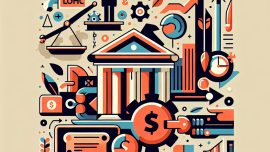



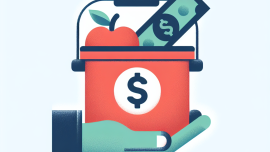
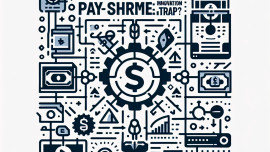
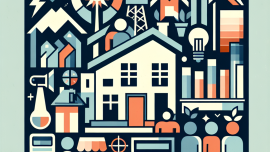
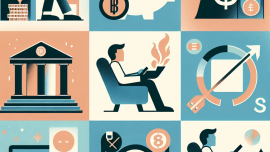
Leave a Reply